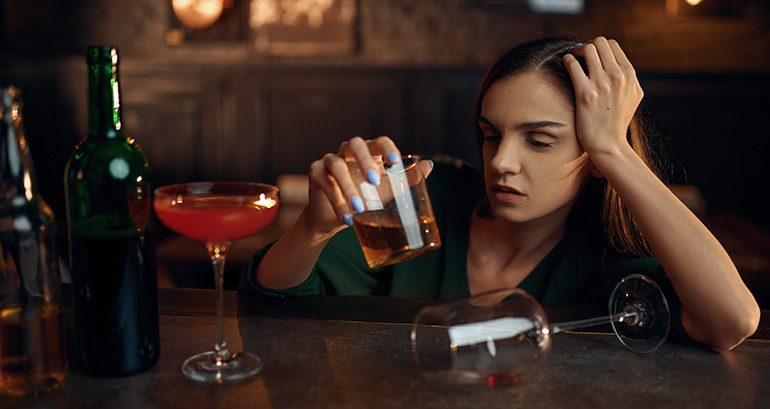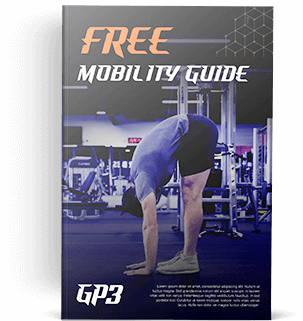Key Points:
- Alcohol is by far the U.S.’s most popular drug.
- Drinking makes us more likely to believe and act upon thoughts we’d be less likely to internalize when sober.
- In this way, alcohol can be best understood as an “ego-enhancer,” the opposite of “ego-suppressing” drugs like psilocybin.
Estimated reading time: 6-12 minutes
Listen to this episode on Spotify!
For the next three weeks, we’re going to talk about drugs. We’ll start with society’s favorite one–alcohol. It’s been astutely observed that this is the only drug where people assume you have a problem if you don’t use it. And in any discussion about the use of various substances, I think it’s important to understand the author’s experiences with them, biases, and general viewpoint. With that in mind, I’d like to ask you a question.
Do you remember your first beer?
I actually do.
I was about eight or nine years old, enjoying a dinner with my family at Chili’s, with no idea of the surprise headed my way. At the time, “high fructose corn syrup” was basically a swear word in my household, so my parents never bought soda for my brother and me. However, restaurant dinners allowed a delightful respite from this rule, and whenever we went out, I’d enjoy a delicious, ice cold root beer. It would often come in a heavy, chilled mug, and I’d sip it while feeling like the luckiest kid on the block.
Perhaps you can see where this is going.
On one of these restaurant visits, my dad ordered a dark beer that came in an identical mug. A few minutes into the meal, he thought he was topping himself off, but poured about half of his beer into my half-full (I was optimistic even as a child) mug of root beer. I didn’t see this happen, and when I took my next sip, I didn’t quite get what I expected.
Turns out, the bitter combination of dark beer and root beer isn’t the most pleasing to a youthful palate, though I luckily did avoid spitting it out across the table.
My Experiences With Alcohol
Perhaps the infamous “Chili’s Switcheroo of ‘99” scarred me, as I didn’t start dabbling in recreational alcohol use until my junior year of high school. This was a bit on the later side, as where I grew up, it wasn’t uncommon for kids to start experimenting with booze as young as thirteen years old. However, the twin degenerate drinking cultures of high school soccer and a boring Midwestern suburb eventually combined to crack my resolve a few months before my seventeenth birthday.
That said, my drug use was mostly limited to alcohol. I was terrified that my performance on the soccer field would suffer from smoking, and I hated the way it made my lungs feel, so I only remember trying marijuana three or four times before age 25. I did learn to enjoy beer, however.
Going to college in Wisconsin exacerbated this, as that state sure knows how to drink. It wasn’t until my fast food experiment in 2019, during which I dramatically reduced my alcohol consumption, that I realized something interesting.
Drinking less than your peers can still translate to “a lot of drinking” if your social cohort is made up primarily of young, Midwestern athletes. The point is, it was easy to think, “I don’t drink that much,” despite consuming far more than the average person.
Additionally, after averaging probably one drink every other week for nearly five months during my experiment, I realized that I didn’t really miss alcohol. It didn’t add much to my life that I couldn’t do without. And currently, my drinking is usually limited to weddings or a cocktail when eating dinner at a restaurant. Before I come across as too negative, however, I’d like to devote some time to the benefits of alcohol.
A Social Lubricant
Undoubtedly, the “inhibition loosening” effect of alcohol can be highly beneficial during social situations. This is particularly true during networking events or new group orientations, when awkwardness and standoffish tendencies may otherwise dominate.
In fact, some anthropologists, biologists, and archaeologists hypothesize that our early ancestors may have bonded over eating slightly fermented fruit. The collaboration brought on by tipsiness may even have encouraged the spread of ideas around innovations regarding farming and raising livestock. Similarly, I recall a former coworker talking about how much easier certain sales calls were if she treated herself to a 4 p.m. glass of wine during a work-from-home day.
So, alcohol can indeed provide some benefits and utility.
However, there’s one key problem.
In the U.S., at least, we typically don’t encourage a drinking culture of moderation. The CDC estimates that 1 in 5 deaths among U.S. adults between the ages of 20 and 49 is due to excessive alcohol use. Reading this statistic initially blew my mind, but maybe it shouldn’t have. In my late teens and for most of my twenties, I genuinely believed that there was no real point in drinking if I wasn’t going to get drunk. Many of my friends implicitly and even explicitly shared this belief. And like probably anyone who’s regularly gotten blackout drunk, I engaged in more than my fair share of embarrassing behaviors while under the influence.
Looking back on drunken actions can raise a few questions. In particular, which more accurately reflects “the real you?” Sober or intoxicated? Well, regular readers of this blog know how I feel about identity. Nothing you have, think, feel, view yourself as, or do is ultimately integral to who you are. In short, you’d still be “you” without any of those things. So the question of whether “sober you” or “drunk you” is more “real” contains a false assumption and therefore isn’t worth worrying about, in my opinion. However, that finally brings me to the question I asked in the title.
Drunken Words and Sober Thoughts
You’ve probably heard the phrase, “Drunken words are sober thoughts.” On a surface-level, I don’t particularly have a problem with this sentence. Rather, I take issue with how it’s often interpreted. It seems many people believe that drunken words frequently or even always indicate something you wanted to say but didn’t have the courage to utter aloud. And I’m not saying this doesn’t happen sometimes.
But, hidden in this saying is the devious notion that thoughts are automatically “true.” Well, one of the most important things I believe anyone can learn is the reality that, “You are not your thoughts.” Put another way, thoughts don’t say anything about you. They’re just reflexes that happen based on a particular set of circumstances.
We understand this to some degree, because we all know that we don’t need to act on every single thought that enters our heads. At least, I hope we do. But we can take this understanding a step further and realize that we also don’t need to believe every thought we have. Thoughts can be (and are) wrong all the time. In fact, it’s possible to live your life with the assumption that every thought could be wrong. Even (wink) that one.
With that in mind, here’s my interpretation of “drunken words” and “sober thoughts.”
Depending on our level of self-awareness and curiosity, we may internalize, believe, and even act upon anywhere from all to nearly none of our thoughts. In our default state, anyway. Alcohol lowers inhibitions, which increases our susceptibility to believing thoughts. Strongly believing thoughts often means we’re more likely to act on them.
So, perhaps when sober, a thought that says, “That guy is flirting with your girlfriend. You should fight him,” would be dismissed out of hand. After two beers, the same thought might raise your blood pressure a bit and create some tension in the room. After eight, you might start swinging. Same thought, wildly different reactions.
Hopefully this example highlights the ridiculousness of automatically identifying with thoughts, either sober or drunken.
Let’s dive a little deeper. If a normally well-adjusted guy drunkenly starts an altercation with another dude at a bar for the perceived crime of ogling his partner, can we conclude that this person is secretly a violent, jealous lunatic? I don’t think so.
Sidenote, lest you think this example is autobiographical, let me assure you it’s just a hypothetical. The closest I’ve gotten to a “fight” was when I was 16 during a soccer game. I crumpled like a ton of bricks after being punched in the side of the head when my opponent forgot the unwritten flow of sports confrontations. I foul you, you say something angry, I say something back, you shove me, I shove you back, it’s over. Except in this case, I turned to walk away right as he threw the first punch. Oops.
Anyway, the point is, alcohol’s inhibition-lowering effect needs to be taken into account when making judgments of someone’s character. By definition, drinking makes you more likely to do things you wouldn’t normally do. You could make the case that what you would “normally do” is more indicative of who you are as a person. And that’s assuming who you “actually are” can even be determined. Check out my article called, “Is it better to be lucky than (a) good (person)?” for a deeper dive on that topic.
Regardless, whether or not “sober you” harbors deep, secret desires to do or say the things you did while drunk is missing the point, in my opinion. Why? Well, those desires are just more thoughts that don’t need to be believed. And if they’re not believed, they won’t be acted upon.
Now, none of this is to say we should be excused from the consequences of our actions while intoxicated. Far from it. Further, some people don’t seem to be able to handle alcohol in moderation, which means their best strategy is to avoid drinking completely. There’s nothing wrong with that either.
In the end, alcohol is best understood as an “ego-enhancer.”
Everyone has thoughts that say things like:
- “They’re disrespecting you!”
- “You’re entitled to that!”
- “You can’t stand for this!”
- “I’m the most important person in the world!”
And so on. Thoughts also may arise and say things like, “You’re not cool or interesting enough to talk to that person,” or, “It’s scary to meet new people. Keep scrolling on your phone instead.”
A drink or two can make us less likely to believe those latter thoughts, while too many drinks can make us more likely to believe the former ones. And I don’t find that level of ego-enhancement particularly beneficial. In fact, it often leads to pain, suffering, and embarrassment for ourselves and others.
That’s why I find it odd that alcohol is Western society’s legal drug of choice, while ego-suppressing drugs like marijuana, “magic mushrooms,” and LSD have been thoroughly demonized. At least until recently.
And it’s those that we’ll talk about next week.
Stay tuned!
Before you go, I’d love to hear from you! What’s your relationship like with alcohol? Do you enjoy it regularly, or is it not for you? Also, do you remember your first beer? Reply to this email and let me know!

